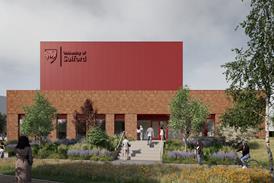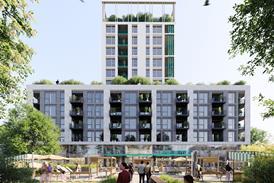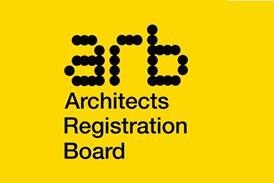Oliver Lowrie shares lessons from the frontline of property event season – and why success depends on more than just showing up

As we enter UK property event season, many of us will feel obliged to dust off the smart-ish blazer and try to remember where we put the 10,000 business cards we got printed in 2019.
The question most of us will be asking ourselves as we fork out for tickets and accommodation for MIPIM, UKREiiF, or LREF is “Does any of this actually win work?”
Sure, it’s great to get a feel for the mood of the industry yada-yada-yada, but we all spend the money on these events looking for it to somehow be returned to us, ideally many times over.
I once woke up from a blurry night at MIPIM with an email sitting in my inbox from a developer I’d met the night before asking me to quote for a project that we had (apparently) discussed, which we were appointed on the next day. This was an absolute one-off, but like the thrill of the early win at the casino, has kept me gambling for many more years to come.
So, if there is not absolute tangible return on investment (ROI), why do we commit thousands of pounds to these events every year? Well, despite being unable to necessarily point to particular projects and determine that their origin was MIPIM or UKREiiF, I can definitely say that the majority of our pipeline is secured through an ecosystem that relies heavily on events.
Last month I wrote about our business development funnel, which we nurture potential clients through. The crucial thing about a funnel is that you need to keep filling it. These large-scale events are great places to get new names into the top of the funnel – so here are some tactics about how to maximise the opportunities from these events.
1. Be targeted, and hunt in packs
The first time I went to MIPIM, I read the list of attendees to work out who I wanted to meet. This is a mega waste of time, as it doesn’t mean you necessarily meet them. Instead, I now set up a few meetings with consultants I work with regularly, and ask them which of their clients are going. By doing this a few times, you will soon have a good list of potential clients that you are likely to be easily able to meet up with.
2. Don’t hunt solo
Some people are brilliant at breezing up to strangers and kicking off conversations. But for me, and many others, that’s about as appealing as drinking cold sick. So that’s when the other consultants I prepped with become ‘hunting partners’. Hanging out with a colleague or business partner at an event is a mistake – it’s too likely you will find it more comfortable chatting to each other. Attending events with a hunting partner gives you instant access to their network (and vice versa for them) and makes you both push each other.
3. Host something – even if it’s small
It’s always better to be the host than the guest. Hosting a breakfast, drinks, or even a simple coffee morning at a café gives you something that you can invite potential new clients to. It doesn’t need to be flashy – just something that puts you at the centre of a conversation. It signals confidence/authority and gives potential clients an easy reason to engage with you.
4. Know the next step in your funnel
You’ll have lots of conversations – many of them pointless, but a few will have real promise. For those ones, be ready with a clear, low-friction next step. People you meet at a property event will likely say yes to an invite to a property event, so that’s why we host a property event series of our own in London – it’s an easy transition into our ‘owned’ events ecosystem.
5. Don’t collect business cards
Be super selective with who makes it through to the next step of the funnel. Have an idea before you go what your ideal customer profile (ICP) is, and make sure when you meet them, you connect on LinkedIn right there and then, and send them a message, so your first follow-up step is done before you have a chance to get another glass of rosé.
6. It’s not all about the Big Events
Whilst MIPIM and UKREiiF are a source of fresh contacts, there are plenty of other ways to fill the funnel, and I genuinely believe that running an events series of your own is the best ROI, as it means that any potential client you meet, you automatically have a next step to invite them to.
7. Partner up to share cost and contacts
Want to keep costs down and boost your reach? Co-host events with another consultant. You’ll halve the budget and double your exposure by accessing their network as well as your own. A well-matched partner can help draw in the kind of clients you’re trying to attract.
8. Build authority through events
If you select a good speaker that your ICP will want to listen to, events can be a real draw for potential clients, and you can associate yourself with the speaker which helps build trust and authority.
In conclusion, a well-considered events strategy can help position a business and build a pipeline of new projects, but just collecting business cards will do neither. It’s essential to look at how events, either big or small, sit within your overall nurture funnel, and what it is that will draw your ideal clients from these events towards working with you.
>> Also read: Postcard from Cannes: Reflections on Mipim 2025
Postscript
Oliver Lowrie is an architect and co-founder of Ackroyd Lowrie
















No comments yet